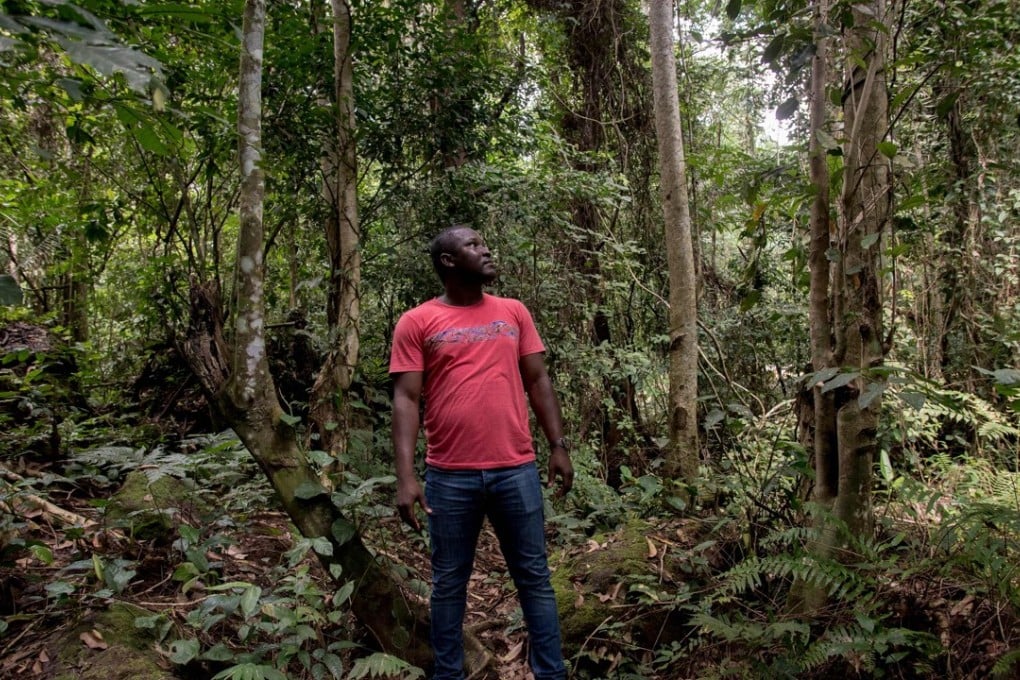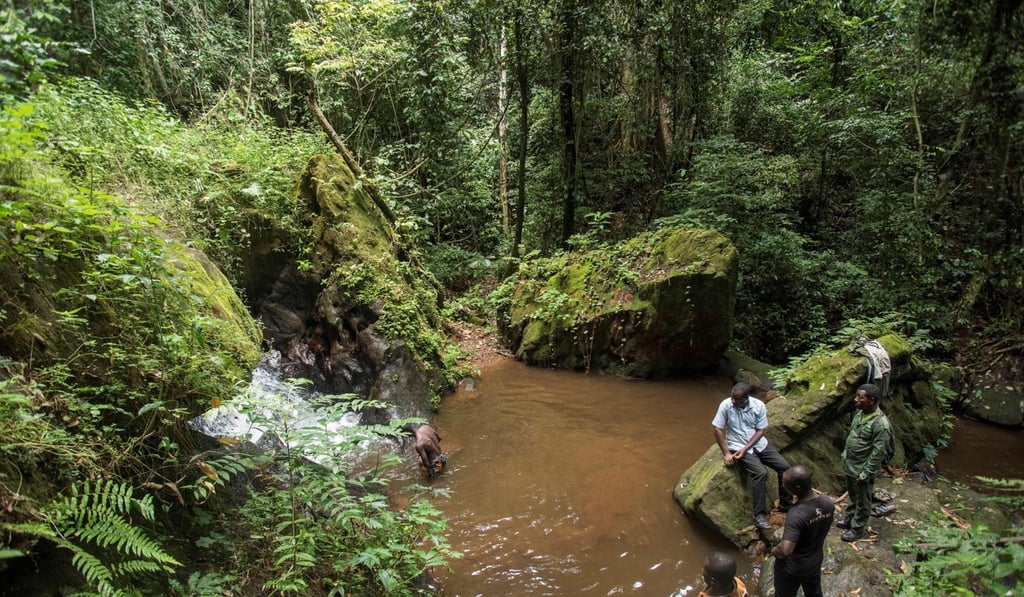Conservationists in Ghana dig in against China-backed bauxite mining plans
- Environmental activists want Ghana’s president to protect the Atewa Range Forest Reserve, a habitat of rare plants and animals
- The country has signed a multibillion-dollar agreement with China to mine bauxite in the region

Ghana’s President Nana Akufo-Addo smiles and waves from fading billboards in his hometown of Kyebi, in the Akyem Abuakwa area of the country’s Eastern Region.
Nearby is another sign for the Atewa Range Forest Reserve, whose steep slopes and cloud-topped peaks rise from the fields of cassava and trees of ripening bananas and cocoa pods below.
“Save Atewa Forest Now!” it reads in a message to the president and his government in the capital Accra, 60 miles (90 kilometres) away.

The upland evergreen forest, with its waterfalls and cliffs, deep caves and valleys, has been described as one of the richest places for biodiversity on the planet.
Its thick vegetation is home to endangered primates and pangolins, rare frogs, birds and butterflies.
But the ground also contains large deposits of bauxite, which gives the earth its distinctive red hue and is the essential component in aluminium production.